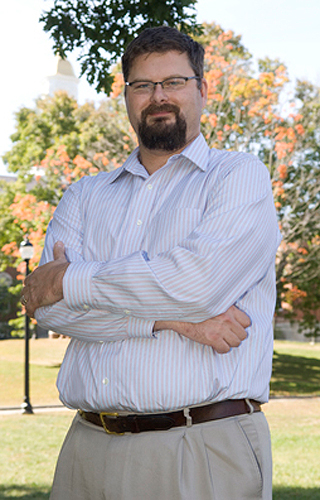
People who are already leaders respect charisma most in other leaders, according to a new study completed by a current and a former graduate student in the communication sciences department in the College of Liberal Arts and Sciences.
Ph.D. candidate Chris Kowal and Major Chris Kasker CLAS ’08 MA, who teaches economics at the U.S. Military Academy at West Point, surveyed 225 West Point cadets, all seniors, in four squadrons participating in Cadet Leader Development training last summer.
The study was undertaken to look at the emotions involved in leadership – and at what motivates people to follow a leader. Cadets answered the survey anonymously. The paper resulting from the study, “The effects of the emotional quality of life on the perception of leadership styles in the military,” was the joint winner of the Emotions Network Conference Best Paper Award presented in Montreal in August.
The study shows individuals perceived to be more charismatic were also perceived as being much better at emotional receiving ability. That is, they could relate well to what others were feeling.
Participants in the study who said they were depressed or sad, however, were more concerned about leaders being compassionate and having credibility than were cadets with a positive outlook on life. The happier cadets rated charisma and competency as the most important traits in a leader.
“We were looking at emotional well being, and emotional quality of life,” says Kowal. “And we wanted to see whether people were looking for a leader who was compassionate or trustworthy or competent or charismatic.”
The results by squadron were consistent, he says, and the study showed that most of the cadets liked their leaders. “If the leader was charismatic, it had a direct impact on all other factors in the survey including competency, compassion, and trustworthiness,” he says.
Since the study was limited to the military, where people generally have a higher level of expectation for their leaders and more emotional control and maturity than other comparable groups, Kowal says follow-up studies will be done with other groups.
But the key question for training officers will be how to develop charisma. “If we can teach people how to be in tune with their own emotions and the emotions of others, that will be a fundamental step,” he says.
The military is interested in the study because it is looking to combine leadership with emotional quality of life, and seeking ways for soldiers to develop coping mechanisms before they go to war, Kowal says.
Kowal, who expects to earn his Ph.D. in May, is focusing his dissertation on emotional communication.

